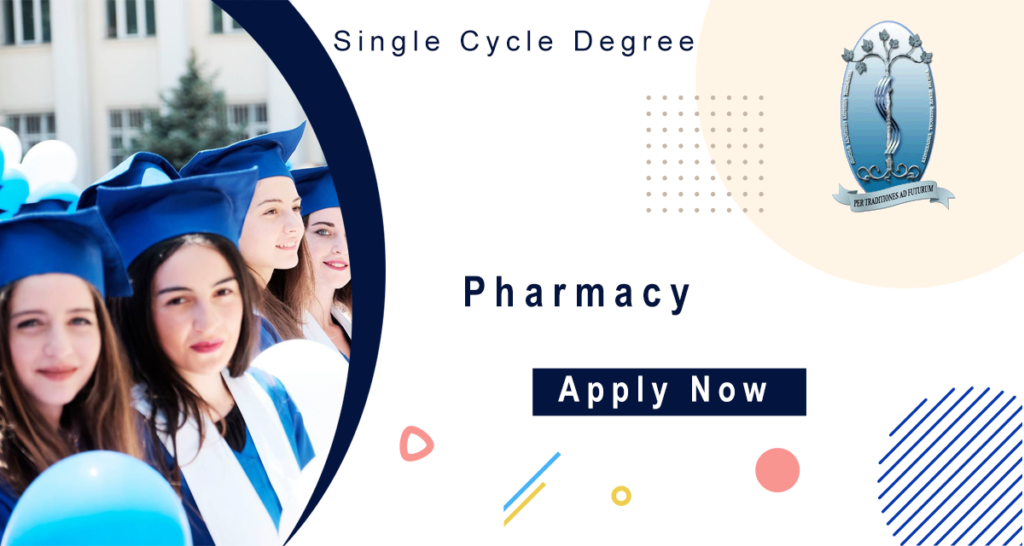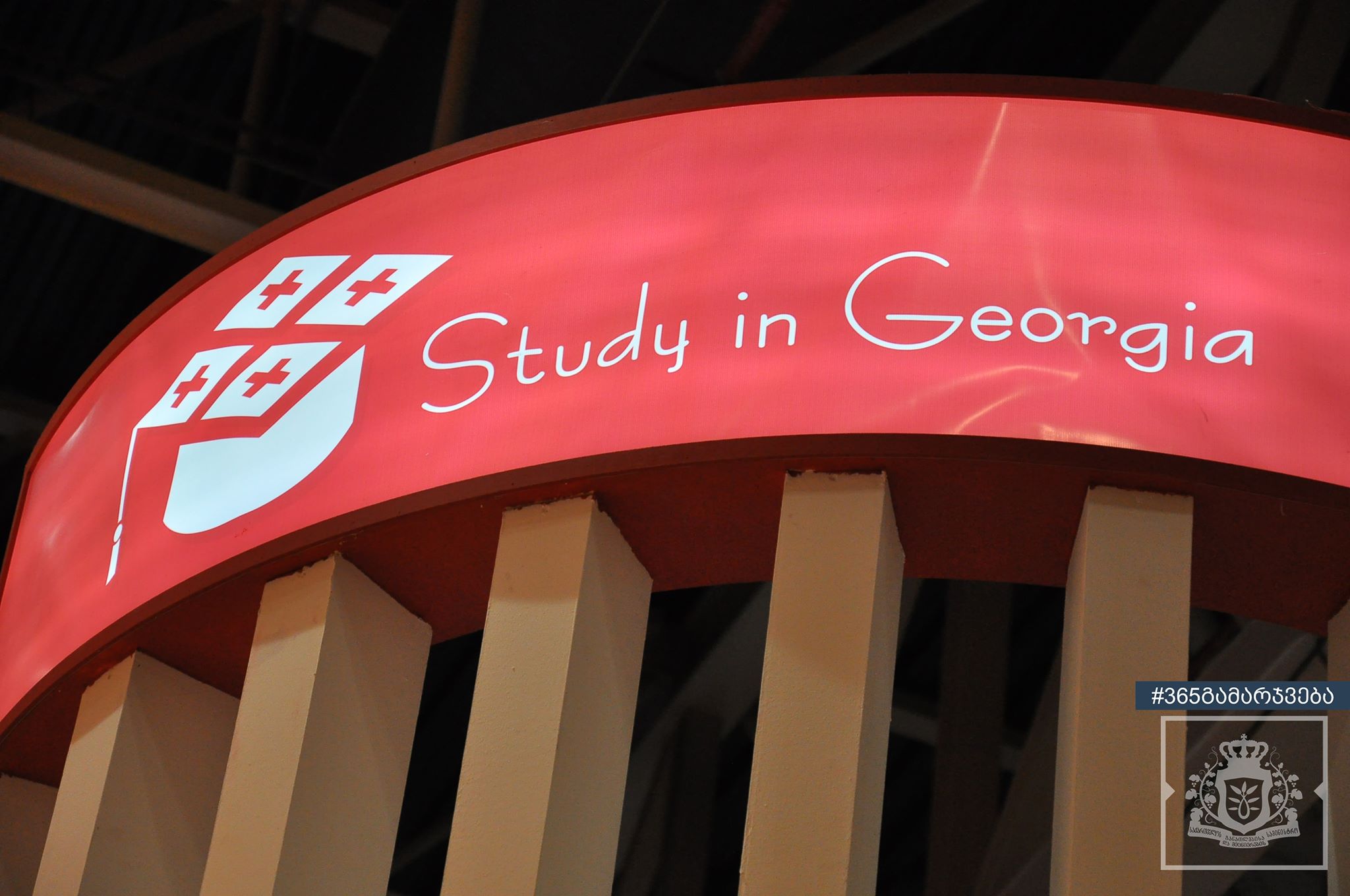University logo:
Program name: Pharmacy
University name: Tbilisi State Medical University
Faculty: Medicine
Web-page: https://tsmu.edu/
University address: 33 Vaja-Pshavela ave. Tbilisi 0186, Georgia
Representative email: enroll@orientcities.com
Pharmacy Program Overview
The aim of the program is to prepare bachelors with the specialty of pharmacy – of higher academic
education oriented on practical activity, having competitive, appropriate competence liberal
values, professional growth, who will be able to: make qualified pharmaceutical help,
manufacturing of curing means, holding pharmaceutical analysis, ruling of structural units
of pharmaceutical establishments and continuation of high education on the next stage.
Pharmacy as the field develops very quickly. Today, the world and Georgian pharmaceutical
market as well as presented by various curing means. Qualified medical assistance should be
followed by appropriate pharmaceutical assistance and rational pharmacotherapy that is
impossible without qualified pharmaceutical staff. Medicine is a different product from another kind of product, it is effective and safe only in the hand of specialists, and otherwise, it harms
human treatment.
For today, under marketing economical condition the number of pharmaceutical
institutions (chemistry, pharmaceutical industry and etc) has importantly grown. Besides,
there is increasing demand for pharmaceutical staff.
The faculty of pharmacy of Tbilisi State Medical University has great experience, traditions,
appropriate human resources and material-technical base for preparing qualified staff with
the specialty of pharmacy.
The educational program “pharmacy” includes getting 240 credits. Bachelor’s program
“pharmacy” provides basic education on basic (exact, natural, and humanitarian sciences),
social, pharmaceutical, and medical disciplines and developing of abilities of effective usage
of learned theoretical material in practice.
After finishing the educational program graduate will get knowledge about the preparation of
pharmaceutical raw material, processing, the technology of curing means, analysis,
standardizations, rational pharmacotherapy, and organization of pharmaceutical activities,
will generate practical abilities for fulfilling pharmaceutical activities (pharmaceutical
assistance, pharmaceutical, and pharmacognostic analysis, pharmaceutical technologies) and
also ability and values for continuation study on the next stage.
Methods of reaching study results
While carrying out the program following methods are used:
- Discussion/debates – one of the widely spread methods of interactive studying. The
process of discussion raises the quality of participation and activity of students. This process
isn’t limited only to questions asked by the professor. This method develops the ability to
conformation ones’ own idea and discussion. - Collaborative work – studying by this method means dividing groups and giving tasks to
them, the members of the group individually think about the issue and share information with
other members. Due to the goal set, there is the possibility to share functions among the
members during the process of study that provides maximal attendance of all students in the
process of study. - Demonstrative method – this method means the visual presentation of information. From the
standpoint of reaching a result, it is quite effective, demonstration of material to be studied is
possible by teacher and student as well. This method helps us to make the perception of
different stages of educational material more significant. Say concretely, what students should
do all alone. The demonstration may carry a simple image or take such a difficult face as carrying
out the multistep experiment. - Method of explaining – is based on the discussion around the given issue, while reporting the
material, the professor is giving a concrete example that is discussed in detail in the frame of
given theme. - Activity-oriented studying – demands the active attraction of students and professors in the
process of study, where practical interpretation of theoretical material takes special loadings. - Verbal or oral method – presentation of new material orally by using multimedia or
without it, by animation showing of apparatus-machines and technology processes. During
the process of study, there are used: interactive technologies, method of analysis and
synthesis, method of explanation, problematic lection – introduction of material in the
regime “menology – dialogues” and others. - Writing method – During the process of study and especially during laboratory lessons
students are able to make writings about the ways of solving objectives of the concrete situation
in the forms of made records. - Practical methods – During the process of study and especially during laboratory lessons
the student is making technology processes independently by using appropriate apparatus machines.
| AVAILABLE SPECIALIZATION | THE DEGREE AWARDED | AMOUNT OF ALLOCATED ECTS | DURATION OF STUDY | THE LANGUAGE OF STUDY | ANNUAL INSTALLMENT |
|---|---|---|---|---|---|
| Pharmacy | Bachelor of Pharmacy | 240 ECTS | 4 years, 8 semesters | English | $ 3 500 USD |
Additional Resources
Register Now!!! and Begin Your Journey Towards Becoming a Certified Pharmacist!
Representative email: enroll@orientcities.com
The documents required to obtain admission:
- Copy of the passport;
- School certificate (Equivalent to A level for Undergraduate Applicants / BA degree Diploma (for MA degree applicants) along with transcript;
- Application fee payment receipt.
- Video Interview (Ask us for details of this interview)
- The student’s E-mail address and contact details





